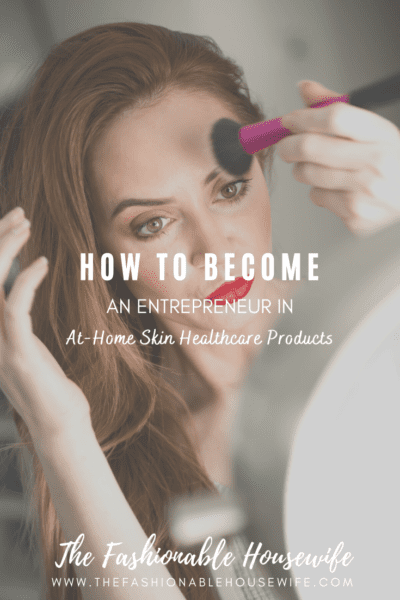
Maintaining healthy and radiant skin is a goal that many people have. For this reason, the skincare market is constantly growing and evolving. People often visit dermatologists for various skincare services, but especially on the non-prescription side of this healthcare space, entrepreneurs are meeting consumer demand with new and innovative products of all kinds. If jumping into this market space is something that appeals to you, here are a few things to consider.
Differentiate Yourself
There is no shortage of products already existing in the at-home skincare realm. Unless you are developing completely new technology, you will be competing with other products that might be pretty similar to yours. It’s important to find the best way to help your products stand out. It might be something as simple as using organic ingredients. Maybe you create creams and lotions with unique scents. Of course, if you have medical expertise, such as entrepreneur Dr Jason Emer, use that to give credibility to your product line.
Starting your skincare product development here can help you focus all of the other steps of the process on the unique aspects of your product throughout development. From packaging to scents to the marketing copy, you’ll be working with your exact product in mind every step of the way.
Find a Problem to Solve
Caring for the skin at home can involve several different types of products, each one with a different purpose. No matter what area of at-home skin healthcare you’re building a business in, you aren’t really going to be selling a product to your customers. You’re selling them a solution to their specific skin problems, from fine lines and wrinkles to stretch marks.
Do look at current market trends, but also know that you can create a successful business around any area of healthcare. You might also consider developing complementary skincare products that can help a consumer solve more than one problem, all with one product line.
Evaluate the Market
Being able to care for one’s skin at home is great for the convenience factor. It is also typically quite a bit cheaper than having procedures done in your doctor’s office.
Consider microneedling — a procedure in which tiny needles are rolled over the skin. Until recently this was only available at a dermatologist’s office, and could easily cost more than $200 per visit. Home versions of microneedling rollers were developed. These rollers can be purchased for as little as $10, making home microneedling a very attractive proposition.
No matter the skincare product or proceadure, though, there is typically a wide range in consumer pricing. Take a look at the current market for the type of product you’d like to make. What is the price range for products that are available right now? What differentiates the higher-priced products from those that cost less? Think about where you’d like your product to fit into the pricing spectrum and use that to help develop an appropriate product.
Do look at current market trends, but also know that you can create a successful business around any area of healthcare. Fusion Accountants supports beauty businesses with specialist accountancy advice.
Find a Partner
Most healthcare entrepreneurs will find that they need to partner with one or more people to get to a finished, sellable product. Finding the right people is an important part of the development process. Chances are that you’re going to need someone else to manufacture your products unless you intend to build a manufacturing facility as part of your business. If you can find a manufacturing partner who can make your skincare products to your standards, and can also help you secure any FDA or other product testing or certification that you’ll need, you’ll have a much easier path to your final product.
If your product requires creating a formulation that you do not have the expertise for, you’ll also need to find a lab to partner with for the chemistry side of development.
Determine Your Sales Channels
Will you be personally selling your own products on a custom-branded website? Or are you looking to get your products into big-name retailers across the country? If you don’t have a marketing background, this may be another area that you’d want to partner up. Consider who your target audience is so that you can determine the best way to sell to that demographic. If you’ll be doing your own selling online, be sure to leave plenty of time for the development of a robust website and marketing funnel. And it’s never too early to start building your email list of potential customers.
Your brand may also benefit from social networking. Maintaining one or more social networking accounts can allow you to develop relationships with your customers by providing them with helpful and possibly entertaining content. Don’t forget, also, that word of mouth is typically the best advertising money can’t buy.
When you’re ready to develop skincare products in the skincare and healthcare field, do your research and determine where you’ll best fit in this business. Your company can thrive in this ever-growing market.



